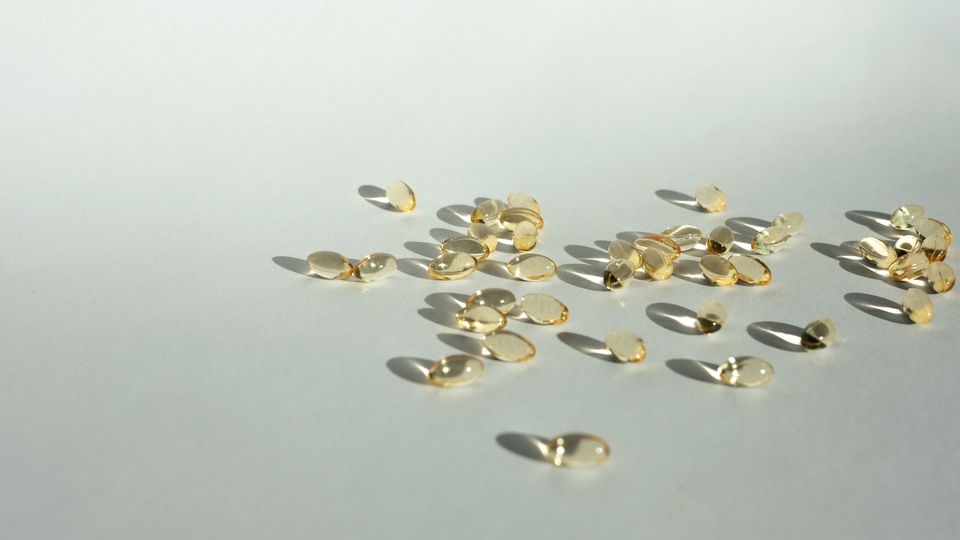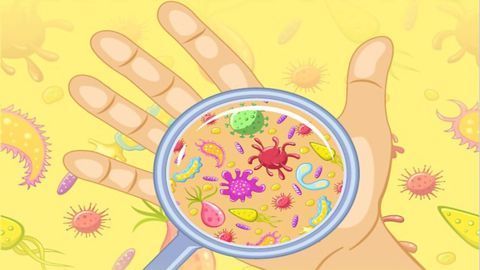Vitamin B12 Boosts Cell Reprogramming Efficiency
Vitamin B12 plays an important role in tissue regeneration and cellular reprogramming in mice.

Complete the form below to unlock access to ALL audio articles.
What is cellular reprogramming?
Cellular reprogramming, when the identity and function of a cell changes, results in the cell acquiring embryonic stem cell pluripotency. This process requires gene expression patterns changes, orchestrated by a variety of transcription factors. During reprogramming, a cell reaches different “intermediate” states, which could be harnessed for regenerative medicine applications.
Researchers led by Dr. Manuel Serrano at the Institute for Research in Biomedicine (IRB) Barcelona are investigating the molecular mechanisms enabling in vivo cellular reprogramming. In a new study, published in Nature Metabolism, they focused on a particular type of reprogramming that requires the expression of four transcription factors: OCT4, SOX2, KLF4 and MYC, known collectively as “OSKM”.
“Continuous expression of OSKM in mice can recapitulate full reprogramming to pluripotency, a process that culminates with the generation of teratomas,” say the authors. “Interestingly, transient expression of OSKM leads to molecular and physiological features of rejuvenation, including an enhanced capacity for tissue regeneration.”
Microbes affect the efficiency of cellular reprogramming
In vitro cellular reprogramming has “unique” metabolic requirements, the researchers explain. Serrano and colleagues hypothesized that this might also be the case for in vivo reprogramming, and so they chose to explore the role that the gut microbiota might play in this process.
Want more breaking news?
Subscribe to Technology Networks’ daily newsletter, delivering breaking science news straight to your inbox every day.
Subscribe for FREEThe researchers induced OSKM expression in a mouse model. To test whether the microbiota was important for in vivo reprogramming, they used a cocktail of antibiotics (ABX) – ampicillin, metronidazole, neomycin and vancomycin – to disrupt it. “Strikingly, despite strong transgene induction, reprogramming was significantly reduced in the colon and stomach of ABX-treated mice,” Serrano and team describe. “Consistent with low levels of reprogramming, ABX-treated mice lost significantly less weight than mice with normal levels of reprogramming.” The data suggest that the microbiome is an important factor for successful in vivo tissue reprogramming.
To understand why, the researchers conducted functional analyses of the microbial changes that occurred during this process. Applying metagenomic sequencing to stool samples from both OSKM-expressing mice and control mice, they found “the most profound loss of diversity occurring in reprogrammed mice”.
Microbes that synthesize vitamin B12 were depleted in reprogrammed mice, which adversely affected epigenetic changes that are critical for cellular reprogramming. “Supplementation with vitamin B12 corrected this imbalance, resulting in enhanced gene function fidelity and overall improved reprogramming efficiency,” says Dr. Marta Kovatcheva, a postdoctoral researcher at IRB and the study’s first author.
Validating the role of vitamin B12 in tissue repair
Serrano and colleagues hypothesized that administering vitamin B12 during injury repair could help to promote cell plasticity. They used an animal model of acute ulcerative colitis to explore this, administering both vitamin B12 and OSKM transcription factors in separate experiments. “In this model, successful repair proceeds through natural reprogramming of epithelial cells to a more embryonic-like state,” they describe. “Remarkably, both OSKM and B12 resulted in significantly improved tissue recovery on day 14, as evaluated by blinded histological analysis, colon length and mucosal integrity."
“Our research uncovers a critical role of vitamin B12 in cellular reprogramming and tissue repair. These findings hold promise for regenerative medicine, with the potential to benefit patients through an improved nutrition," says Serrano.
RNA-sequencing data from pediatric ulcerative colitis patient samples revealed similar hallmarks of cellular reprogramming, which suggests a conserved mechanism may exist between animals and humans. “We speculate that similar plasticity-mediated processes are conserved across various adult tissues of limited regenerative capacity, and that vitamin B12 may also improve repair in these diverse settings,” the authors explain.
“Overall, our results advance our current molecular understanding of in vivo and in vitro reprogramming and highlight the possibility to safely administer B12 for the therapeutic enhancement of cellular plasticity for regenerative medicine, organ injury and repair,” they conclude.
Reference: Kovatcheva M, Melendez E, Chondronasiou D, et al. Vitamin B12 is a limiting factor for induced cellular plasticity and tissue repair. Nat Metab. 2023. doi: 10.1038/s42255-023-00916-6
This article is a rework of a press release issued by IRB Barcelona. Material has been edited for length and content.



